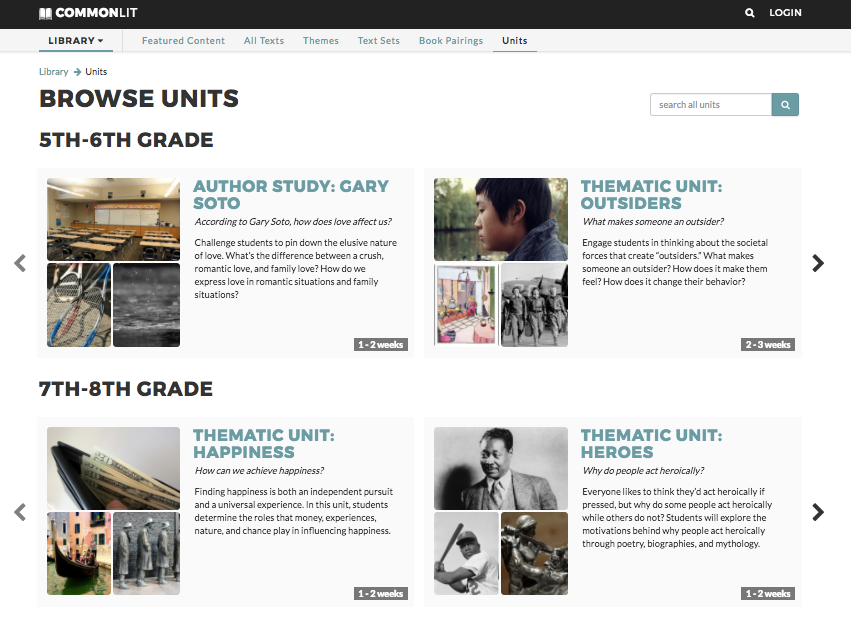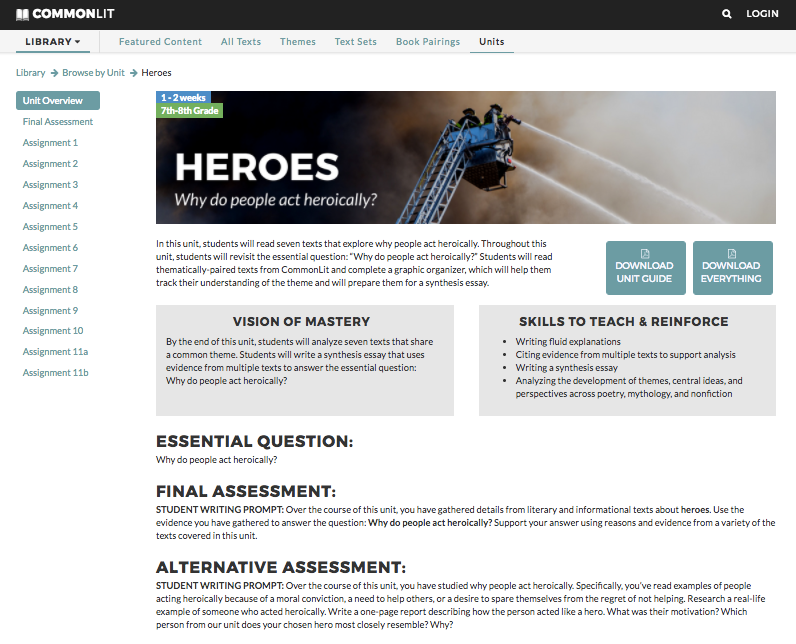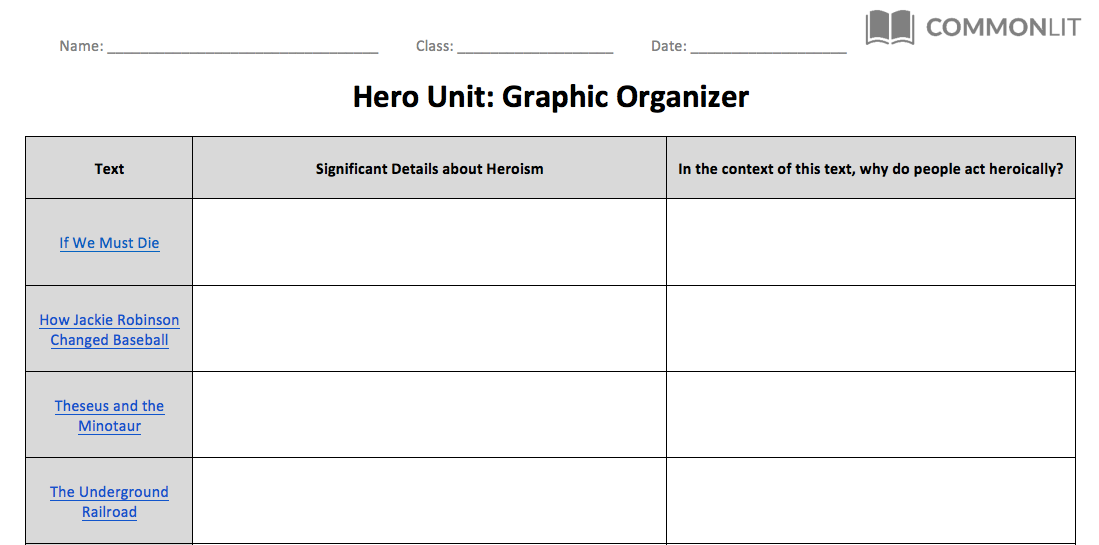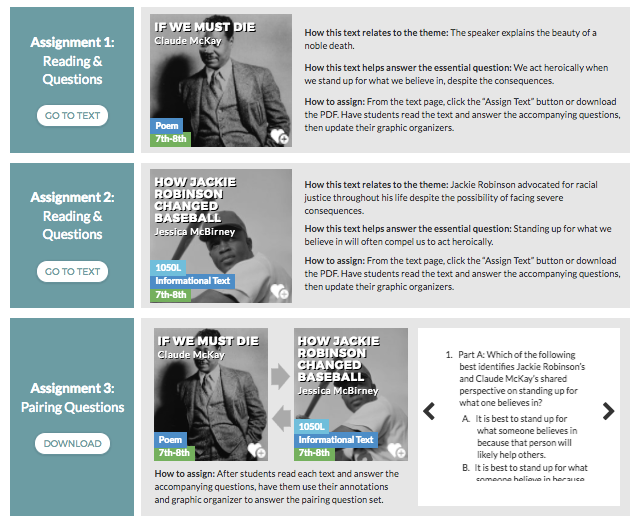Everything you need to get started with CommonLit’s Units
When I taught 7th Grade English, I spent hours looking for the perfect texts to weave into my units. I searched Google. I searched educational websites. I searched and searched and searched. I normally felt good about the final product, but I was frustrated because searching for texts took too long and I had a million other teaching responsibilities. That’s why we’re so excited to be releasing CommonLit Units. These units are guaranteed to save you valuable time and to engage your students.
Each of these 15 Units include:
- 6–10 texts organized around an essential question
- Text pairings that encourage cross-textual analysis
- A final assessment
- An alternative assessment that encourages students to be creative
- Questions for cross-textual analysis
- Printable student handouts with graphic organizers
- Answer keys

The Essential Question and Text Selection
To show you how these units work, let’s look more closely at the 7th-8th grade unit entitled “Heroes.” Throughout the unit, students will work on answering the essential question, “Why do people act heroically?”

Throughout the unit, students will be reading about figures like Jackie Robinson, Harriet Tubman, Ida B. Wells, and Miep Gies — all people who expressed enormous courage during their lives. Students will also be exposed to literary texts like “If We Must Die” and “Theseus and the Minotaur.” When reading these texts, students will be encouraged to think about and collect evidence that answers the question “Why do people act heroically?” We’ve created an editable graphic organizer that you can use to meet the needs of your students.

Unit Assessments
Each unit includes a “Final Assessment” and an “Alternate Assessment.” In this Heroes unit, the “Final Assessment” is:
heroesWhy do people act heroically?
Our goal when designing these units was to create final assessment questions that are rigorous yet straightforward. Ideally, after students read the texts in this “Heroes” unit, they will be armed with a lot of information and ideas about why a person would act heroically.
Instead of using the straightforward “Final Assessment,” you could utilize the “Alternate Assessment.” The “Alternate Assessment” is also rigorous, but it allows students to use a bit more creativity when writing:
Over the course of this unit, you have studied why people act heroically. Specifically, you’ve read examples of people acting heroically because of a moral conviction, a need to help others, or a desire to spare themselves from the regret of not helping. Research a real-life example of someone who acted heroically. Write a one-page report describing how the person acted like a hero. What was their motivation? Which person from our unit does your chosen hero most closely resemble? Why?
This assessment allows students to make connections with one of their personal heroes, but it also requires students to have access to additional texts. In this way, the alternate assessment is a great way to build student autonomy and choice.
Chunking the Unit
In this first part of the unit, we recommend students start with “If We Must Die” by Claude McKay before moving onto an informational text regarding the life and accomplishments of Jackie Robinson. For these texts, teachers can either assign the lessons through CommonLit’s digital platform or through our PDF handouts.
As you and your students dive deeper into the unit and reach “Assignment 3,” you’ll also notice that there are “Pairing Questions” featured. These “Pairing Questions” will pop up at various points during the unit. They are designed to compel students to synthesize the texts in the unit as they read. Giving the students the opportunity to practice their cross-text analysis is also a great way to seamlessly tuck test practice into your units without compromising student engagement or rigor.

Currently, the best way to assign these questions to your students is to download the handout for Assignment 3. As you can see below, our team has created multiple choice questions that bridge the two texts, as well as a writing question that pushes students to draw upon their knowledge of “If We Must Die” and “How Jackie Robinson Changed Baseball.”

We hope that these tools make unit planning more fun and less time-consuming.


